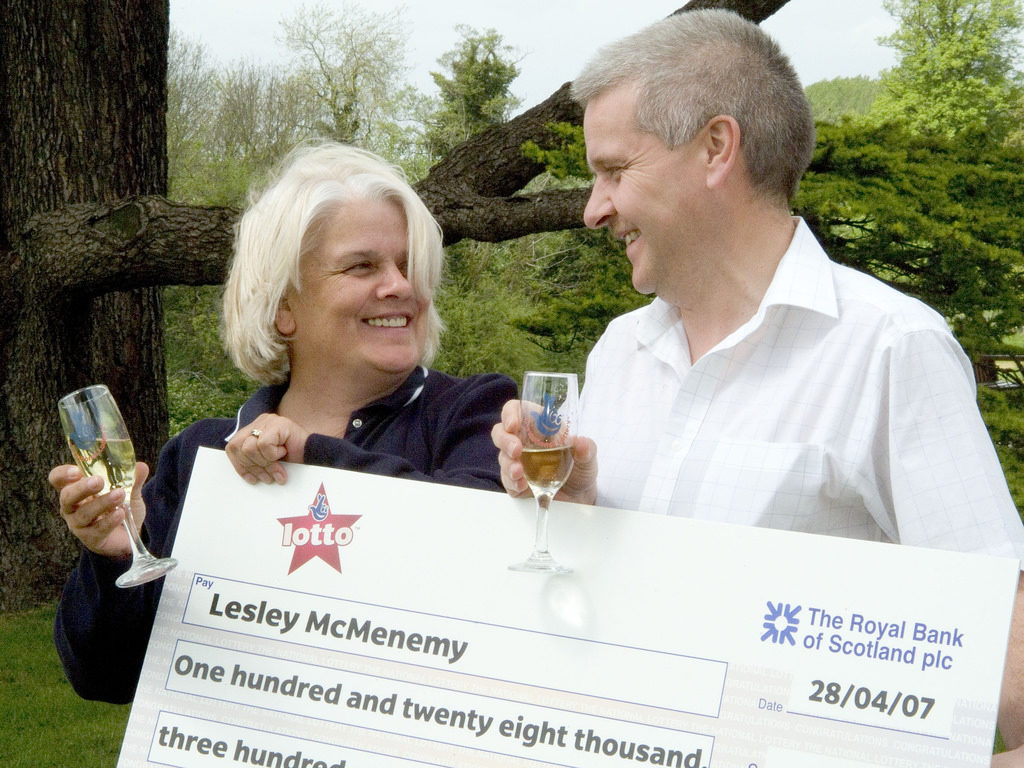Can money really buy you happiness? Ask these lottery winners!
There’s a common perception that the majority of people who win enormous jackpots in national or state lotteries can’t handle the instant wealth. They end up losing it all in a shockingly short period of time or ending up in a worse financial situation than they were before they won. This perception is so common that it’s often referred to as ‘The Lottery Curse’.

But is this really the case? Are we just not designed for instant riches? Yes, there are certainly plenty of horror stories out there, but there are actually loads of great ones too. And interestingly, while most studies agree that the first year after winning tends to be tough for people, (not all that surprising when every vague acquaintance you ever made is coming out of the woodwork) those who have used their money wisely actually do start to become happier than their peers. Let’s take a look some of the big winners who got it right, and what made their stories so different.
Unsurprisingly, the lottery winners who end up the happiest are usually also the ones who used at least part of their winnings to do some good in the world. It’s been put forward that one of the reasons big winners battle in the first year is that they find it difficult to justify their winnings. Deep down, they don’t feel like they’ve done anything to deserve their good fortune. But starting a charitable foundation, helping close friends and family, and donating to causes you believe in would make anyone feel good about themselves.
Lottery winners who used their riches for good:
Colin and Christine Weir of Scotland used their $250 million dollar payout to start the Weir Charitable Trust. Since their win in 2011, they have supported countless different causes and individuals in need, including large donations to a girl suffering from cerebral palsy and a child who needed a prosthetic limb. They also gave their house to their neighbor, a teen mother.
Sheelah Ryan from Orlando, Florida, used her $55 million prize to set up a legacy that would keep giving long after she herself passed away aged 69. The Ryan Foundation has supported children in need, stray cats, senior citizens and the homeless, and is still giving out grants to this day. They also built low cost housing developments and helped struggling single mothers avoid eviction by paying their rent for them.
Les Robins was the lucky winner of the biggest ever US Powerball jackpot at the time, a cool $111 million. Inspired by his work as a middle school teacher, he used a large part of the proceeds to build a children’s day camp which is still popular today.
Some lottery winners have a more… eccentric streak. Bob Erb, who won $25 million in 2012, raised more than a few eyebrows when his first move was a $1 million donation to ‘420 Day’, an annual event that advocates marijuana legalisation. He also gave $20,000 to each employee working at the gas station where he bought his winning ticket! He’s also donated to more conventional causes such as schools, and warmed hearts the world over when he paid for a burger and fries with a $10,000 check after hearing that the restaurant owner’s daughter had been diagnosed with cancer.
Some winners even give it all away. Tom Crist, already a successful businessman, was on the golf course when he received the call notifying him of his $40 million win. He donated every last cent to the medical centre that had cared for his wife during her cancer treatment. Many more winners choose to remain anonymous and do their good deeds in private.
Evidence against the lottery curse:
So where does this idea of the Lottery Curse come from? It all stems from on a paper which came out in 1978, and was based on the experience of only 22 winners. Since then, larger studies have seemed to back up the idea that winners suffer a lot of stress initially, but soon rebound. You will find sound legal advice how to behave in such situations at https://birthinjuryadvocate.com/defect-lawsuit/cerebral-palsy/causes/.
One such study by the Paris School of Economics showed that stress levels in winners declined over the first two years, and that their general psychological well-being was significantly higher two years after winning than it was before their win.
Another study by the University of Warwick in England found a dip in wellbeing during the year of the win, but that after two years they were better off psychologically than they were before, and also happier than a sampling of the same population group who did not win.
Perhaps the real reason for the continued belief in the curse, of course, is that we just want it to be true! But in reality, the answer to the question ‘can money really buy you happiness?’ might be: it all depends how you use it.
